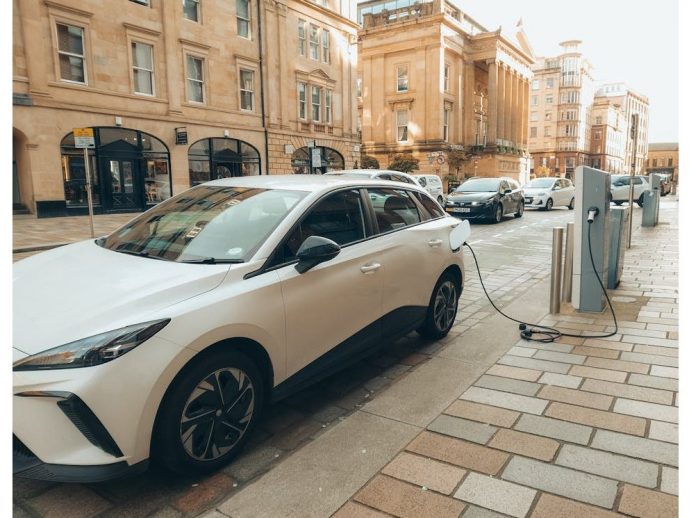Categories more
- Adventures (17)
- Arts / Collectables (15)
- Automotive (37)
- Aviation (11)
- Bath, Body, & Health (77)
- Children (6)
- Cigars / Spirits (32)
- Cuisine (16)
- Design/Architecture (22)
- Electronics (13)
- Entertainment (4)
- Event Planning (5)
- Fashion (46)
- Finance (9)
- Gifts / Misc (6)
- Home Decor (45)
- Jewelry (41)
- Pets (3)
- Philanthropy (1)
- Real Estate (16)
- Services (23)
- Sports / Golf (14)
- Vacation / Travel (59)
- Watches / Pens (14)
- Wines / Vines (24)
- Yachting / Boating (17)
Differences Between Hybrid, Plug-In Hybrid, and EV Batteries
Published
12/18/2024The automotive sector is evolving, emphasizing eco-friendly options such as hybrid and electric vehicles. These vehicles cater to environmentally conscious consumers who seek sustainable transportation solutions. They utilize distinct battery technologies tailored to meet varying preferences. This article aims to differentiate the various types of vehicle batteries and the environmental impact of their unique features.
Hybrid Vehicle Batteries
Hybrid cars combine an internal combustion engine with an electric motor to enhance fuel efficiency. A compact battery pack, typically nickel metal hydride (NiMH) batteries, powers the electric motor. Many favor these batteries for their durability and reliability in different driving conditions.
Hybrid vehicles incorporate regenerative braking technology, which recharges the battery while the car is in motion, capturing energy the vehicle would otherwise lose during braking. This feature eliminates the need for external charging, which is convenient for users who may not have access to charging stations.
Car Batteries That Work With Both Gas and Electricity
Plug-in hybrid cars (PHEVs) allow drivers to switch between electricity and gasoline based on their driving needs and preferences. Unlike standard hybrids, plug-in hybrids have larger battery packs, which enable them to travel significant distances using electric power alone. Lithium-ion batteries are standard in plug-in hybrids due to their superior energy storage capacity and effectiveness.
The best EV car batteries provide enhanced performance and a more extended range. Plug-in hybrids are a practical choice for those seeking electric and gasoline power options. Furthermore, you can recharge plug-in hybrids using various sources, including public charging stations and standard home outlets, which reduces reliance on gasoline and caters to users with regular commutes or easy access to charging facilities.
Electric Vehicle Batteries
Electric cars rely entirely on electricity for propulsion. This factor eliminates the need for gasoline engines and frequent refueling. The core component of an electric vehicle is its battery, which stores sufficient energy to drive long distances on a single charge. Lithium-ion batteries are predominantly favored in the electric vehicle industry due to their high energy density and overall efficiency compared to other battery types.
The availability of a robust charging infrastructure is essential for the practicality and convenience of electric vehicles. Public charging stations and home charging setups are crucial in supporting EV owners. The best EV car batteries can significantly reduce recharge times, which makes electric vehicles more convenient and accessible.
A Comparison Study
Several factors come into play when evaluating different types of car batteries. Hybrid cars offer an easy transition for those accustomed to traditional vehicles by improving fuel efficiency without requiring external charging. Plug-in hybrids merge the benefits of both hybrids and electric cars by providing the option to drive on electric power while having a gasoline engine as a backup. Electric vehicles are environmentally friendly as they eliminate emissions using renewable energy sources.
Cost considerations also influence decision-making. Due to their simpler battery technology, hybrid vehicles are generally less expensive than plug-in hybrids and electric cars. However, the savings on fuel expenses and available tax benefits can offset the initial costs for owners of plug-in hybrids and electric vehicles. Investing in EV car batteries can lead to long-term financial benefits, which makes these options increasingly attractive.
The Emerging Patterns of Tomorrow
The future of car batteries looks promising as technology continues to advance. Researchers remain focused on enhancing battery energy storage capacities and improving charging speeds. Solid-state batteries represent a significant breakthrough in transforming the industry by offering better safety and increased operational efficiency.
Sustainability and battery recycling are also key considerations, with companies developing methods to minimize the environmental impact of battery manufacturing and disposal. As technological advancements make batteries more affordable and practical, the widespread adoption of eco-friendly transportation solutions is becoming increasingly attainable.
In Summary
Understanding the differences between hybrid, plug-in hybrid, and electric vehicle batteries is essential when selecting the right vehicle for your needs. Hybrid cars offer the convenience of not requiring external charging, while plug-in hybrids provide flexibility by allowing charging from external sources when necessary. Electric vehicles depend on a reliable charging infrastructure but stand out as the most environmentally friendly option due to their emission-free operation. As technology in the battery sector continues to evolve, it paves the way for innovative transportation solutions in the future.















